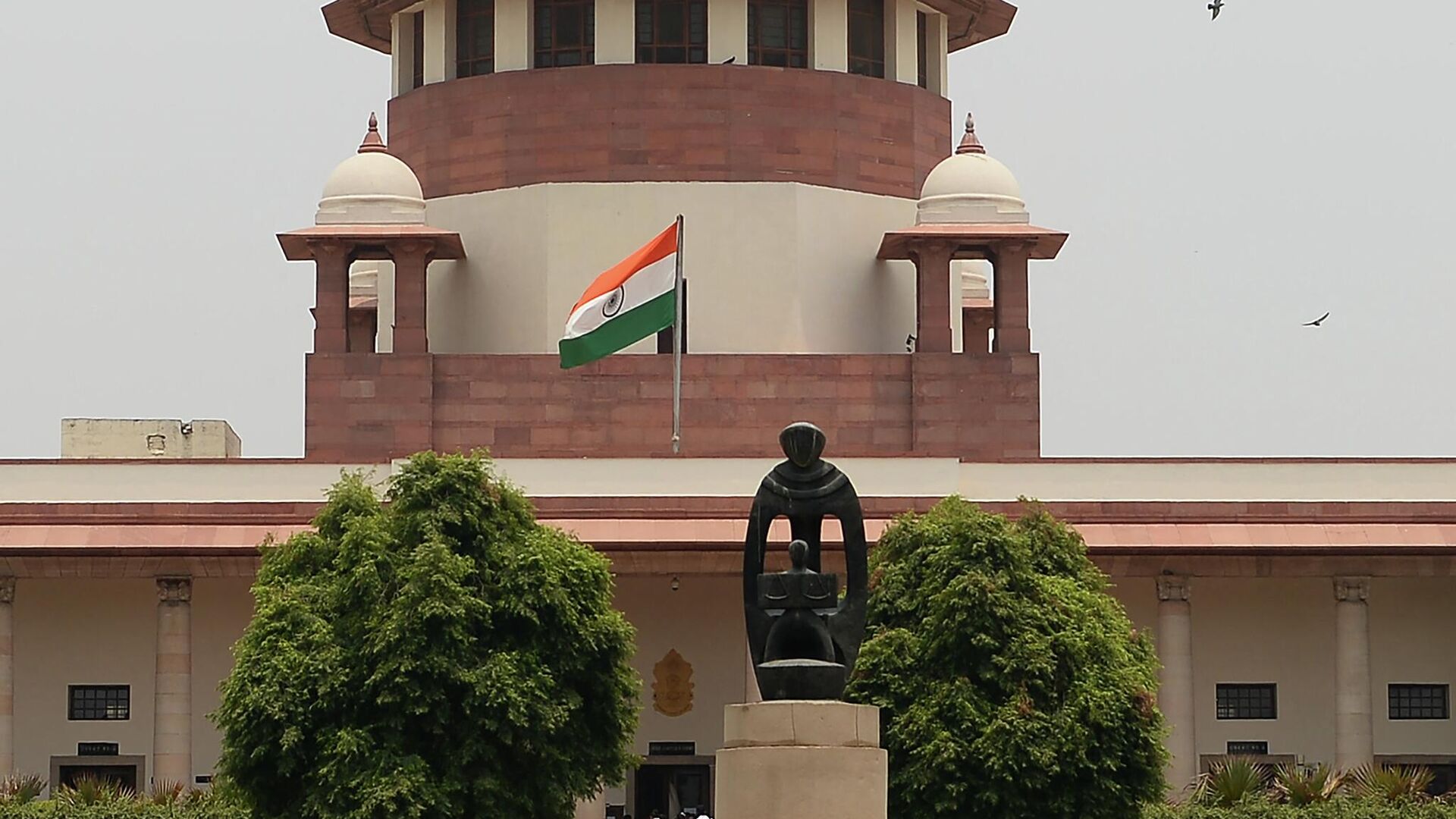Who is India's 50th Chief Justice, D Y Chandrachud?

© AFP 2023 / SAJJAD HUSSAIN
Subscribe
On 11 October, India's 49th chief justice Uday Umesh Lalit named Justice Dhananjaya Yeshwant Chandrachud as his successor in a letter and the country's president approved the candidacy on 17 October.
Justice Dhananjaya Yeshwant Chandrachud on Wednesday took his oath as the 50th Chief Justice of India (CJI) in the presence of President Draupadi Murmu at a ceremony at Rashtrapati Bhavan - the president's official residence in Delhi.
Heartiest congratulations Dr Justice DY Chandrachud on being appointed as the 50th Chief Justice Of India!
— Kiren Rijiju (@KirenRijiju) November 9, 2022
Best wishes to him and look forward to work in very close coordination to ensure speedy delivery of Justice. pic.twitter.com/F7c2D8328B
He will serve as the chief justice for two years until 10 November 2024 and then retire.
Justice Chandrachud's swearing-in has a certain added poignancy since he is following in the footsteps of his father, Yeshwant Vishnu Chandrachud, who served as India's 16th chief justice from February 1978 until his retirement in July 1985 - they are the only father-son duo to have served as CJIs.
A Journey to Chief Justice
Justice Chandrachud was born on 11 October 1959. After completing his education in India, he studied at Harvard Law School.
Later, he returned to the country and became a lawyer. In 1998, he was designated a senior advocate, becoming the youngest person in India to reach the rank of senior advocate. The same year, in 1998, he was appointed additional solicitor-general of India.
In 2000, he became a judge in the Bombay High Court, where he served for 13 years.
Justice Chandrachud was appointed chief justice of the Allahabad high court in 2013, and later in 2016, he was elevated to the Supreme Court of India.
When the incumbent CJI retires, the senior judge of the Supreme Court is appointed to the top post. Like the rest of the Supreme Court judges, CJIs usually retire at age 65.
CJI Chandrachud, moments after taking oath as the 50th CJI of the country says “It is a great opportunity, a great responsibility. I will let my work speak, not just my words”.
— jagadeesh (@jarajapu1990) November 9, 2022
“Will instill people’s faith in the SC not only by my words but also by my work,” CJI DY Chandrachud pic.twitter.com/LpQ2WGap1i
Justice Chandrachud is reportedly an early riser who is said to get up at 3.30am. He is also a man of "frugal dietary habits" known among his colleagues for his "intellect and cultured behavior".
A slew of media outlets have described him as a judge with a "liberal outlook" who excels particularly in cases concerning women, the marginalized or minorities. According to one Indian media outlet, "Chandrachud is known for his progressive views and energy on personal liberty, rights, and autonomy".
In 2018, he was on the bench that repealed the 158-year colonial law, and decriminalized same-sex relations between consenting adults.
In September 2018, he was part of the five-judge panel that unanimously struck down Section 497 of the Indian Penal Code (IPC) dealing with adultery. According to this, a man who has consensual intercourse with another man's wife is guilty of a legal offense.
In 2020, he led a two-judge panel that dismissed the federal government's submissions that women are physiologically weaker than men. The court judged that women are eligible for permanent commission and command posts in the army.
In September this year, a bench headed by Justice Chandrachud gave unmarried women the right to have abortions when they were up to 24 weeks' pregnant and he is one of the judges of a five-judge bench that heard the case related to the Ram temple land dispute.
"As a judge, Justice Chandrachud has built a distinguished legacy of compassionate justice that has a keen sense of listening to voices that are either silent or seldom heard. As Chief Justice, his long tenure may be a challenge in these fractious times but it is, undoubtedly, a formidable opportunity for a scholar-judge such as he is," The Indian Express daily wrote in an editorial piece on Wednesday.

